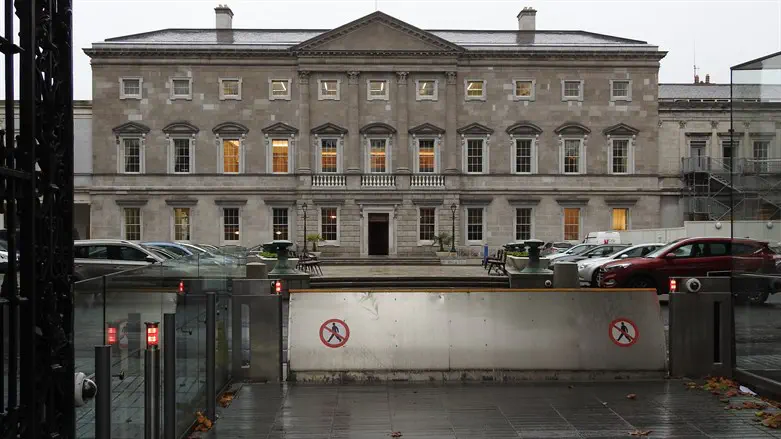The Irish government is preparing to scale back its planned sanctions targeting Israeli communities in Judea and Samaria, following sustained pressure from multinational corporations and warnings of economic fallout, Reuters reports.
Ireland had been preparing legislation to restrict trade with Israeli communities in Judea and Samaria for over a year. The proposed law, which would have placed Ireland ahead of any European Union-wide measures, drew sharp criticism from Israel, international business lobby groups, and US lawmakers.
Despite the government’s strong rhetoric, sources familiar with the matter say Dublin is now poised to narrow the scope of the bill to cover only goods – excluding services that opposition parties had pushed to include. The limited measure would affect a small number of products, such as fruit, worth approximately €200,000 annually.
Foreign Minister Simon Harris told Parliament he expects legal advice from the attorney general “shortly” on whether services can be included in the bill. He previously expressed concern that such an expansion may not be legally viable.
A spokesperson for the foreign ministry referred Reuters to Harris’s comments in Parliament, noting that the bill would be debated before the legislative break in mid-December, but emphasized that broader EU measures would carry more weight.
Business representatives have warned that including services in the sanctions could entangle US-based multinational software and pharmaceutical companies, potentially discouraging investment in Ireland. The Irish Business and Employers Confederation (IBEC), the country’s largest industry lobby group, has publicly voiced concern that the US could retaliate against multinationals operating in Ireland for boycotting Israel.
Relations between Israel and Ireland have been strained as Ireland has been a vocal critic of Israel’s conduct in the war in Gaza.
In April of last year, Harris, who at the time was Ireland’s Prime Minister, failed to mention the hostages being held by Hamas during his first speech after being elected leader, resulting in criticism from Israel’s Foreign Ministry.
Later, Harris criticized Israel’s strikes against Hezbollah targets in Lebanon, accusing Israel of a “pattern of flouting international law and disregard for rules of engagement”.
A month later, Ireland joined Spain, Norway, and subsequently Slovenia in officially recognizing a Palestinian state.
In December, Israel shuttered its embassy in Dublin amid escalating tensions, citing Ireland’s recognition of a Palestinian state and its vocal condemnation of Israel’s military actions in Gaza.
In response, Irish President Michael Higgins lashed out at Israel, and said that its accusations that the Irish people are antisemitic are a “gross defamation” and “deep slander”, while claiming that Prime Minister Benjamin Netanyahu “is in breach of so many bits of international law and has breached the sovereignty of Lebanon, Syria and would like to have settlement in Egypt.”
Sa’ar responded to Higgins and said, “Once an antisemitic liar – always an antisemitic liar.”
In January, Higgins took advantage of his speech at an event in honor of International Holocaust Remembrance Day to criticize Israel.
